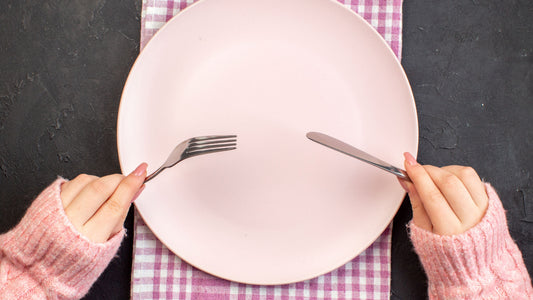
Scientists and researchers have known for more than 40 years that people who eat a mostly plant-based diet weigh, on average, up to 30 pounds less than the general population. Plus, you can eat more food on a plant-based diet and still drop pounds.
In a Hawaiian study that appeared in a 2020 review article, published in the American Journal of Lifestyle Medicine, people ate a traditional Hawaiian diet with unlimited quantities of plant foods (fruits, vegetables, whole grains, and beans), and the study subjects lost an average of 17 pounds in 21 days!
They actually consumed fewer calories, but not because they were eating less food—they consumed an additional 4 pounds of food while losing weight on this traditional diet. Whole plant foods tend to be so calorically low that weight gain will not occur even when you eat as much as you want.
This review also pointed out that certain foods in a plant-based diet – namely green leafy vegetables, especially kale and spinach - are high in compounds called “thylakoids.” They increase leptin levels in the blood. Leptin is the satiety hormone that tells the brain and body that you’re full. So by eating lots of greens, you’re consuming a powerful appetite-reducing ingredient. My Keto-Green plans are high in green leafy veggies.
Plant-based diets are also high in fiber. Fiber is a nutritional miracle worker. We need it more now than ever before. It helps balance blood sugar and it produces satiety after meals. It keeps us regular and prevents constipation. It creates a healthy microbiome that is well populated with friendly gut bacteria, which in turn supports weight control, immunity, and hormone balance. Plus, studies suggest that if you eat more fiber, you’ll keep your estrogen levels from fluctuating wildly.
Even if you’re a confirmed omnivore like me (I eat everything except dairy), you might want to consider trying a plant-based diet. In my new book MenuPause, I have a six-day plan called the Keto-Green Plant-Based Detox. It shows you how to be a plant-based eater, while incorporating the low-carb principles of ketogenic nutrition. Many vegans and vegetarians think they can’t go keto, but they certainly can. This Detox shows you how.
One of the reasons I created this plan is because I recommend that you pause from animal foods at least two to three times a year (or more), in 6-day cycles, as part of the Keto-Green lifestyle. This is a beneficial tool for health and hormone balance—something we have learned from lots of studies.
This plan is 100 percent plant based. It swaps out animal foods for plant-based substitutes such as beans, legumes, tofu, and tempeh, while remaining high in alkaline, thylakoid-rich vegetables such as green leafy veggies.
Consider this plan if you:
- Are a vegan or vegetarian.
- Want a break from animal products periodically, which I highly recommend.
- Are experiencing these symptoms of menopause: digestive problems (bloating, constipation, irritable bowel syndrome, and so forth), sleep disturbances, hot flashes, night sweats, and weight gain.
- Need to lose weight steadily.
- Have been diagnosed with hormonal imbalances or abnormal blood lipids (high triglycerides and high total cholesterol), or you’ve been told you’re at risk for heart disease. Plant-based diets are highly cardioprotective – which is important because heart disease is the number-one killer of women.
- Want to explore the plant-based lifestyle.
What do you get to eat on this plan? Plenty of great foods. Take a look:
Vegetables: Pretty much any and all fresh, low-carbohydrate, high-fiber vegetables are on the table, like leafy greens, lettuce, tomatoes, spinach, broccoli, bok choy, mushrooms, Brussels sprouts, cauliflower, cucumbers, peppers, summer squash, and zucchini.
Protein: My favorite plant-based protein sources are beans, tempeh, tofu, lentils, and chickpeas. Green peas and edamame are also great options.
Nuts and Seeds: Almonds, cashews, walnuts, chia seeds, flax seeds, and hemp seeds are all staples on this plan. Nut butters and nut milks, too! All these foods contain protein and healthy fats.
Healthy Fats: Extra-virgin olive oil, coconut oil, MCT oil, avocado oil, walnut oil, and olives are important to have on hand.
Herbs and Spices: They are loaded with disease-fighting antioxidants and hormone-balancing phytonutrients. My favorites are garlic, oregano, basil, thyme, mint, sage, rosemary, cinnamon, nutmeg, and cardamom.
The bottom line here is that eating a plant-based diet is definitely helpful for weight loss, as well as for women in the tenacious stages of hormone shifts.
Want more information on how to get on a plant-based diet? Order your copy of Menupause now and start reaping the many benefits of this lifestyle. You can also get a taste of some of the recipes in this ebook: Recipes for Menopause.



